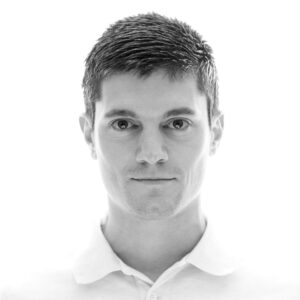So genannte Massive Open Online Courses (MOOC) haben in den vergangenen Jahren signifikant an Bedeutung in der internationalen Bildungslandschaft gewonnen. Zu Recht: Solche Onlinekurse verzichten bewusst auf Zulassungsbeschränkungen, kombinieren multimediale Inhalte (z.B. Videos, Texte, Aufgaben) je nach Intention der Wissensvermittlung, funktionieren „self-paced“ und sind somit ein probates Instrument in der Erwachsenenbildung geworden. Ein aussergewöhnlich guter Online-Kurs dieser Art (4,92/5 Sterne auf Coursera, 12’320 Bewertungen, 3.7 Millionen Kursteilnehmer) wurde von Prof. Dr. Laurie Santos vom Department of Psychology der Yale University ins Leben gerufen und lautet „The Science of Well-Being“. Nicht nur der Titel klingt hochaktuell, die Inhalte auf Basis aktueller wissenschaftlicher Studien sind es gleichermassen: Was macht uns als Menschen wirklich glücklich? Welche Mechanismen stehen uns zur Verfügung, um unser Glück (engl. happiness) zu vermehren? Welchen Irrtümern und Täuschungen (engl. fallacies) der menschlichen Psyche unterliegen wir? Was sind so genannte „Signature Strengths“ und wie kann ich sie leben? Warum ist ein „Growth Mindset“ so elementar für einen konstruktiven Lebensentwurf, in dem ich Probleme als Herausforderungen begreife?
Der Kurs beantwortet all diese komplexen und tiefgründigen Fragestellungen und noch viele mehr. Anbei findet sich eine Auflistung der Quintessenz und praktischen Implikationen (in englischer Sprache). Nichtsdestotrotz sei der gesamte Kurs und die dazugehörigen Videos jedem empfohlen, der mehr über positive Psychologie, die menschliche Psyche und über den individuellen Weg zum persönlichen Glück erfahren möchte.
Link zum Kurs: https://www.coursera.org/learn/the-science-of-well-being
- Rethink „Awesome Stuff“ – invest in experiences rather than stuff
- Thwart Hedonic Adaptation
- Savoring – taking time to savor the things you enjoy
- Gratitude – (List and/or Letter) – expressing gratitude for the people and things in your life
- Negative Visualization (Make This Day Your Last) – thinking about what things would have been if they didn’t go that way, can cause you to kind of break out of your hedonic adaptation
- Reset your reference point
- Concretely Re-Experience – find a way to go back and re-experience things that you realize you’re taking for granted to appreciate again
- Concretely Observe – finding a reference point that’s not as good as yours and concretely observing what that reference point is really like
- Avoid Social Comparisons – become aware of the (upward) social comparisons you let in and avoid them wherever you
- Interrupt Your Consumption – pause and come back to good experiences later in order to get a reboost that overcomes hedonic adaptation
- Increase Your Variety – break up your adaptation and change your routines to mitigate adaptation
- Signature Strengths – using your top character strengths in new ways
- Increasing Flow – The mental state in which a person performing an activity is fully immersed in a feeling of energized focus, full involvement, and enjoyment (= “the zone”)
- Focus on intrinsic motivation and develop a growth mindset – Engage in a behavior because you enjoy the activity itself and intensify the belief that most basic abilities can be developed through dedication and hard work
- Kindness – increasing your acts of kindness
- Social Connection – making connections with strangers and acquaintances along with scheduling time for the people in your life
- Time Affluence – you just have time to do the stuff that you want
- Mind Control / Meditation – meditating for 5-10 minutes if you are a beginner or increasing your time in meditation if you already meditate regularly
- Healthy Practices
- Exercise – increasing your physical activity to at least 30 minutes a few times a week
- Sleep – making sure you sleep at least 7 hours a night several times a week
- Situation Control – fix bad environments and promote healthy ones
- Goal Setting – accurate goal specificity, visualization, and planning

Dr. Carsten Paulus
Chief Executive Officer (MED4LIFE)
Bewegungstherapeut und Fitnesstrainer (MED4LIFE)
Coach für Sporternährung (MED4LIFE)